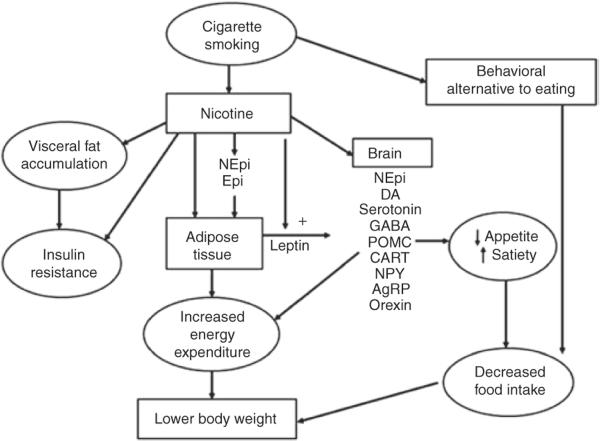figure 3.
Mechanisms through which cigarette smoking reduces body weight. Smoking reduces body weight by increasing energy expenditure and inhibiting the expected compensatory increase in caloric intake. Nicotine increases energy expenditure both by direct effects on peripheral tissues, largely mediated by catecholamines, and by effects on central nervous system neuroendocrine circuits. Nicotine's effects on the brain also leads to suppression of appetite, and smoking per se can serve as a behavioral alternative to eating. AgRP, Agouti-related peptide; CART, cocaine amphetamine-regulated transcript; DA, dopamine; Epi, epinephrine; GABA, γ-aminobutyric acid; NEpi, norepinephrine; NPY, neuropeptide Y; POMC, proopiomelanocortin.

